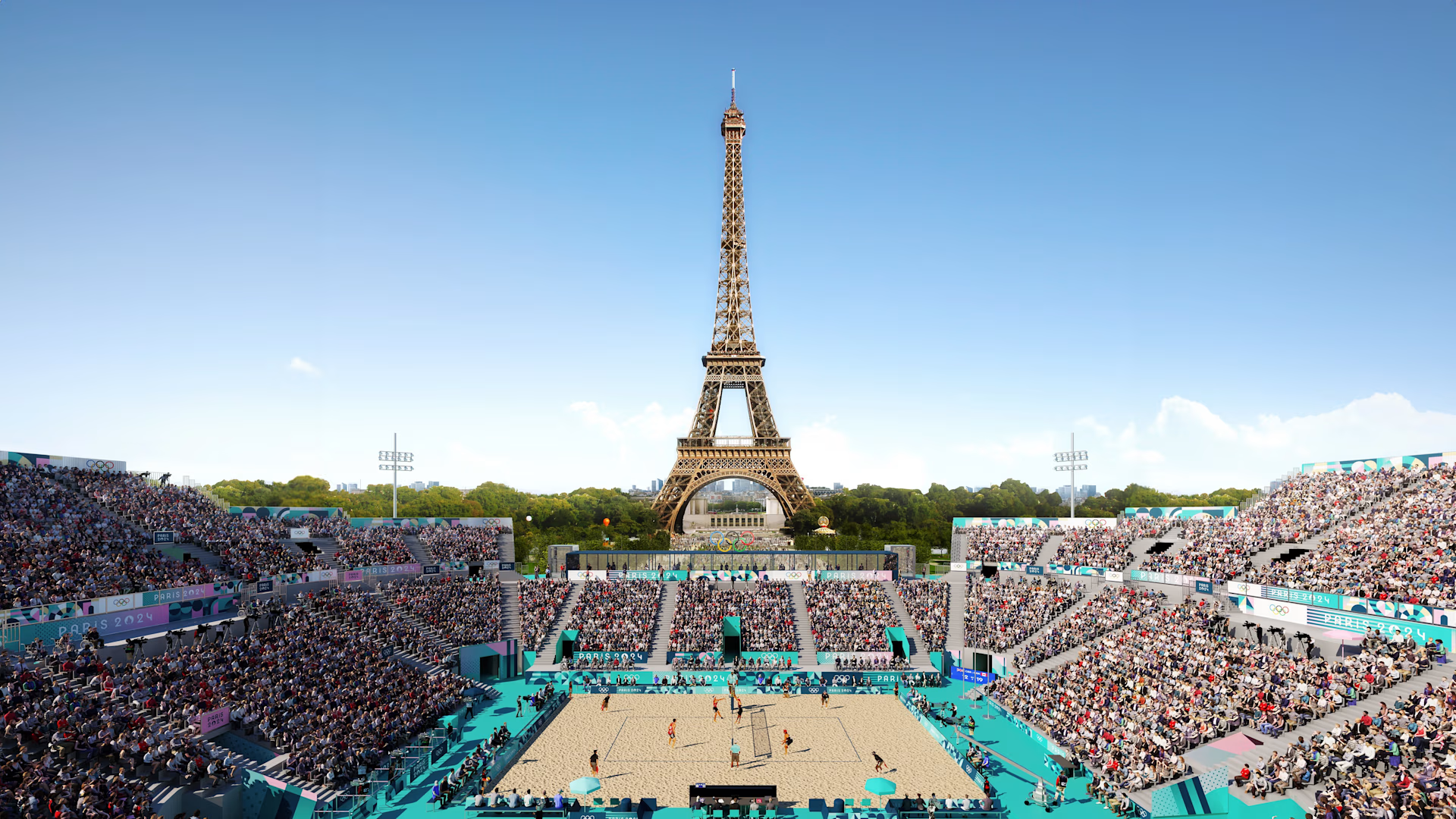Topics

Paris 2024: What No-One Told You
Why are the French both proud and complaining about it? No, it’s not only because they’re French! Here, we mainly talk about the impacts on people residing in France, visitors coming to Paris for this special event but also money and some scandals you may not have heard of, and more importantly, we will also wonder who the Games really benefit the most. Every four years, the eyes of the world turn towards a single event: the global celebration of excellence and pushing oneself beyond limits, without borders, without barriers, for a moment of intense gathering around sports—namely, the Olympic Games. It’s not without reason that I decided to talk about the Olympics today, as the 2024 edition starts in less than two months, it’s happening here in my country, and it keeps making headlines. I won’t go over ticket prices, unfavourable geopolitical context, or the choice of the First Lady to host the opening ceremony. Exactly 100 years on, France is hosting again the Summer Olympics and for the third time. France hosted them in 1900, and 1924 and will host them this summer 2024. And you know why Paris was selected? There was no competition! Rome, Hamburg, and Boston, all withdrew, either due to referendums where the population said NO, or due to protests and that was not the French in the street protesting for once…! Can you be a winner when there is no opponent? So here we are! Both proud and complaining about the Games! In this video, we uncover what the French are complaining about exactly and what they are proud of for the Paris 2024 games! And since I like to finish on a positive note, we’ll start by diving right into the dirty reality of the Paris 2024 games! Ready? You’ll be surprised! Paris 2024 Olympics 101 But before that, in case you missed the memo here are the basics: The Paris 2024 Olympic Games will take place from 26 July to 11 August 2024. The Paralympic Games will take place from 28 August to 08 September 2024. This means 329 events and over 10,500 athletes from 206 delegations. In the past few months or even a bit more, many scandals already hit the French media about the Paris 2024 Olympics! Paris 2024 Dirty Waters From money allocation to housing scandals and environmental issues that will most certainly put some athletes’ health at risk… I won’t be able to mention all the scandals since it’s been too many… However, have you heard that some competition will take place in the Seine River? How romantic! Not really…It’s described by many as total madness, others like to see this as ambition. Yes really ambitious since there is no plan B! Well, you should know that after 100 years of swimming ban in the Seine River for being unsafe due to pollution, we’ll be able to swim in the Seine again. Well, the athletes, and maybe the Parisians as they used to do in the good old days. Pollution-cleaning boats are sweeping the bottoms for over 60 km. They retrieve all kinds of waste, over 360 tons of waste per year. They get everything, shopping carts, electric scooters, city rental bikes, safes, motorcycles, you name it! However, they already announced that they will not manage to fully clean the river due to the enormous quantity present! In reality, the biggest problem with the Seine is the wastewater and unwashed pesticide from the agricultural sector that flows into it. Basically, the wastewater from houses and rain runoff, in normal times, they’re mixed and sent to treatment plants. But when it rains a lot, this system becomes saturated, and untreated wastewater flows into the Seine River through storm overflows. In 2022, over 2 million cubic meters of untreated wastewater were discharged into the Seine. Untreated water, what do you think it is? Some solutions have been implemented; the overall budget for the Seine sanitation is 1.4 billion euros. They’ve created reservoirs that can hold excess water, the equivalent of 20 Olympic swimming pools. So when it rains, they have storage capacity, which prevents overflow into the Seine. The problem is, that authorities have already warned that this system won’t be enough in case of heavy rain. Which we had in the past few weeks… So, we’ll pray there’s no storm, right? As they say, it’s not madness, it’s ambition. And remember, there is no plan B so either the athletes swim in the Seine River or the triathlon and open-water competitions are cancelled which is not part of the plan. But let’s not worry, the Mayor of Paris and maybe our President are going to swim in the Seine River on June 23rd, before the Olympics. I’m sure this will sanitise the River instantly! Everyone is holding their breath! It is also unclear if the president plans to take preventive measures such as probiotics or medications in case of a run-in with bacteria such as Escherichia coli or Enterococcus, which can cause severe gastrointestinal illness or leptospirosis. Some sports teams participating in the triathlon and open-water competition between Alexandre the First Bridge and Les Invalides near the Eiffel Tower have planned precautions, advising swimmers not to touch anything after exiting the water, especially not their eyes or mouths, before full disinfection. How romantic! Let’s talk money!!! How the Games are being financed Behind the festivities, performances, and medals lies a colossal machine handling billions of dollars, and for a few decades now, it’s been escalating. Each edition aims to be more beautiful and grander than the previous ones. Today, the Olympic business has taken on titanic proportions and requires staggering budgets, from the construction of colossal infrastructure to billions of dollars in broadcasting rights, marketing, and sponsorship. How much does the Olympics cost? Who pays? And how much do they bring in? Hosting the world’s largest sporting event requires significant resources and the ability to mobilise them quickly. In exchange for all these efforts, the host cities and countries hope for major commercial, tourism, fiscal, or image-related benefits, and even more if national athletes win medals. Then, it’s a total success. This is also the argument used to silence critics who claim the Olympic machine is just an expensive mirage, the most costly promotional tool in history. According to them, the financial windfall of sports enthusiasm always benefits the same people and certainly not the host country, let alone the local populations or athletes. (Remember Paris had no opponent to host these Games!) Officially, an Olympic session has four main sources of funding: TV and broadcasting rights, which represent the largest revenue, about 50% on average; sponsorship for about 25%; and the rest comes from ticket sales and marketing and licensed product sales like plush toys, t-shirts, and souvenirs sold in Olympic village shops. All this money is supposed to finance the organisation of the Games, the construction of infrastructure, accommodations, transportation, security, and of course, the festivities. The International Olympic Committee (IOC), the official body of the Olympics, proudly claims that 96 to 99% of budgets are funded by private sources. We will see later with the Paris example that this is far from the truth. How did we get to that point? The IOC is a non-profit organisation founded in 1894 to promote sports values everywhere in the world. But since Pierre de Coubertin, things have changed a lot, and commercial interests have largely surpassed the scope of universal celebration of sports and performance. Attracted by constantly growing audiences, broadcasters agreed to pay more and more, and sponsors multiplied. Little by little, the Games transformed into an economic and commercial machine with staggering performances. The last Summer Olympics in Tokyo was watched by nearly 3.5 billion people cumulatively, and a billion viewers are expected for the next opening ceremony in Paris. Advertisers and other partners are now willing to spend billions of dollars to enjoy the exceptional visibility offered by the Olympics, and that’s precisely why they have turned into an industry. You have to go back to 1956 and the Melbourne Summer Olympics to find a budget without broadcasting rights. Since then, the escalation has continued, from 560 million dollars for the Los Angeles Olympics in 1984, and more recently at the Rio 2016 Games, the total broadcasting rights exceeded 5.3 billion dollars. Thus, the race to gigantism was established as an Olympic discipline in its own right. Paris 2024 Olympic budget When France submitted its bid in 2015, the budget for organising the Games was estimated at €3.3 billion, and €3.4 billion for infrastructure, making it a particularly economical session compared to Rio or Tokyo, which exceeded $20 billion. In practice, the resources are centralised by our national Olympic committee, Paris 2024, which then allocates them to various expenses and projects in agreement with the IOC. Construction and maintenance of infrastructure, modernisation or securing public spaces and transport, salaries of people present during the Games, rewards for athletes, and their accommodations with Michelin-starred chefs and local organic products at every meal. We are in France, after all. We have seen that these resources come from ticket sales, sponsor contributions, and finally, the IOC’s allocation, which usually represents the largest portion. But as often, the budget has already overrun, and we’re talking about a significant overrun. According to a reassessment by the Court of Auditors in 2022, expenses reach €8.9 billion, divided between €4.4 billion for the organisation and €4.5 billion for infrastructure construction (remember it was originally estimated at €3.3 billion, and €3.4 – but what’s 2 billion difference, right?) And it’s not over yet; unforeseen events happen all the time, and no one is surprised anymore. We will have to wait until the end of the Games to get the complete picture, but with few exceptions, hosting the Olympics costs a lot and deepens deficits. The total bill has not yet been established, but here are some excerpts from the invoice: salaries, €587 million, not counting bonuses for police, an additional €500 million; those for healthcare workers and RATP and SNCF drivers are not yet evaluated; artists for the opening ceremony, €20 million; the ceremony, €220 million excluding security, estimated at €295 million for the 17 days of the event; 50,000 volunteers to welcome and animate the venues every day, 8 hours a day, €0—yes, that’s free; cleaning and preparing the Seine and Marne rivers, €1.4 billion; burying high-voltage lines, €52 million; construction of the Fan Zone Club de France at La Villette, €22 million; €337 million for marketing and €480 million for telecommunications deployment; €500 million for unforeseen events; €300,000 for condoms; and not counting what is not counted. In total, €4.4 billion. We are far from the most lauded Games of 2015. In the end, those who cost the least are the athletes, the heroes of the Olympics, who for the most part are far from wealthy in their daily lives but are also there to make a name for themselves. A gold medal, actually made of silver plated with gold, is worth around €800. A silver medal, made of silver and copper, is worth €350. And a bronze medal, mostly made of copper, is worth about €15. Financially, it won’t change their lives. €111 million is enough to reward the real stars of the Olympic machine or 4% of the initial organisation budget. But this does not account for a major player in this adventure: Solideo, the public agency created to manage the real estate aspects of the Games. Initially endowed with a budget of €3.2 billion, it has now transformed into €4.5 billion, with only 68% of these funds being private. In the end, €1.2 billion comes from the taxpayer’s pocket. So if you are an expat living in France, you’ve most certainly contributed to this as well! So the Games are partly public. No need to pull out your calculator to see the sums of money they move. The only winners are the companies that will reap the

Settling in France: Practical Advice for Talent Passport Visa Applicants
Talent Passport is the golden ticket to work in France. Eleven opportunities to settle in France. Let’s uncover misconceptions and figure out which one is a match for you!

French traditions and customs I miss when I’m abroad
My favourite French traditions and customs! Nostalgia is on! Today, I’ll share with you the typical French customs that I miss the most as a French expat living abroad!

What CEFR French language level do you need to move to France?
From beginner to proficiency, let’s explore the CEFR to understand the French language levels you need to have the French life you want.

Profession liberale in France: A Comprehensive Guide for Aspiring Business Owners & Freelancers
Achieving your entrepreneurial dreams is within reach! This ultimate guide will help you understand the ins and outs of starting a profession libérale in France, whether it’s regulated or unregulated. Get ready for an exciting journey!

4 Unforgivable Mistakes When Relocating To France
Did you know that 40% of expatriation fail when relocating to France? If you avoid a few common errors, your chances of success go way up!
